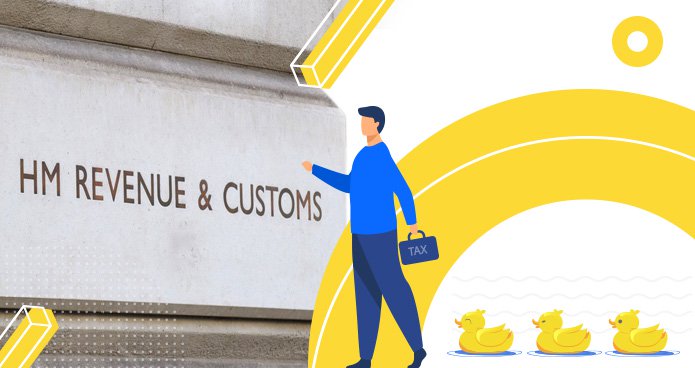If your accounts and tax return depict an unusual picture, it is quite likely that your case might fall prey to the HMRC’s hawkeye. One such case that got caught in HMRC’s net was of taxpayer Alistair Jordan Rankin.
Jordan incorporated a company A & C Jordan Ltd. (ACJ Ltd.). He had two contracts, one for director duties and another one for consultancy service with his parent’s company Rapid Platforms Ltd. (RP Ltd.). He received £5,000 income from RP Ltd. for rendering consultancy services. He claimed a few exorbitant expenses which were identified by HMRC as unreasonable. And then it has begun;
Alistair Jordan vs The Commissioners of Her Majesty Revenue and Customs (TC07501)
Jordan claimed several expenses as employment and self-employment expenses in his self-assessment return relating to the tax year 2013-14. HMRC raised questions on the following expenses claimed by him:
- Employed Expenses
- Amount of £19,128 paid to Sympatico Corporate Strategies Ltd. for “SSAS Pension Scheme needs, analysis, solution provision, solution implementation, intellectual property”.
- Amount of £5,872 paid to Hall Accountancy Ltd. relating to taxation and accounting services including preparation and submission of self-assessment return.
- Self-employed expenses
of £120,000 paid to his own company ACJ Ltd. for “value-added services” charged at the rate of £100 per hour for 1,200 hours.
HMRC raised enquires against such claims made by the taxpayer. A series of correspondences were exchanged between Jordan and HMRC. Finally, a closure notice was issued by HMRC on the 27th of July 2017, disallowing Sympatico’s invoice of £19,128 and self-employed expenses of £120,000. Jordan then appealed against this closure notice.
It was held that:
- Employment expenses:
As per section 336(1) of the Income Tax (Earnings and Pensions) Act (ITEPA) 2003, “deductions from earnings is allowed for an amount if:
(a) the employee is obliged to acquire and pay it as the holder of the employment status, and
(b) the amount is acquired wholly, exclusively, and necessarily in the performance of the duties of the employment.”
The services availed from Sympatico Corporate Strategies Ltd. were of personal nature being pension planning for self and not “wholly, exclusively and necessarily” in the course of employment. Hence shall be disallowed.
Similarly, the amount of £5,872 relating to taxation and accountancy services was to be disallowed since they were related to Jordan’s personal tax returns. To Jordan’s good luck, these were allowed by HMRC in the closure notice hence the Tribunal did not amend the closure notice and it also allowed the amount of £5,872. - Jordan was unable to convince that the value-added services were actually been carried out. Section 66 of the Income Tax Act 2007 states that “Trade loss relief against general income for a loss made in a trade, in a tax year is not available unless the trade is commercial.” Hence, this trading loss of £120,000.00 could not be justified as a commercial business and so could not be claimed as trade loss relief against general income.
Don’t spill your water and slip on it
If we go through the facts of the case it would be pretty evident that the taxpayer and his accountants had been lackadaisical while preparing the tax returns. The expenses that were brought under the purview of suspicion were obvious enough to be disallowed. While claiming business expenses, one should keep in mind the bottom line for claiming the expenses i.e. “wholly, exclusively and necessarily in the performance of the duties of the business or employment” can only be claimed. In this case, the taxpayer’s expense claims were blatantly excessive, and could not stand up to scrutiny from either HMRC or the FTT.
Talking about Jordan’s claim for Mr. Hall’s accountancy fees, such an amount should have been actually disallowed by HMRC but instead, it allowed the same. FTT though baffled by HMRC’s approach did not propose to amend the closure notice. This, as a matter of luck, acted in favor of Mr. Jordan.
In a further misstep, HMRC failed to issue a penalty notice for inaccuracies of £11,201.66, despite having stated that it would do so. Hence, the taxpayer, in this case, was fortunate enough not to be charged with a penalty. Consequently, no penalty was payable by the taxpayer. But that won’t be the case every time. If you are also not sure about the expenses that can be claimed and that cannot be claimed, we are here to help you out.
Click here to read about expenses that can be claimed by a business.













